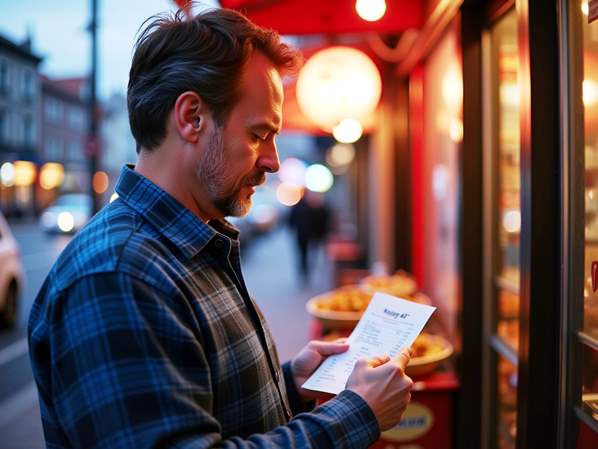
Tipping practices in the U.S. have always been complicated, but a recent Reddit post brought a new level of controversy to the table.
A customer expressed frustration after a restaurant asked for a “second tip” when he picked up his online order. The incident sparked a heated online debate about tipping. Is the current system fair? Many diners think it’s gone too far.
The Story That Sparked the Debate
According to The Sun, the disgruntled diner explained that he had tipped $1 while placing his order through the restaurant’s website. However, upon arriving at the restaurant, he was presented with a receipt that included a line asking for an additional tip. Understandably frustrated, the customer vented on Reddit, declaring, “If I choose to go back, it’ll be zero tip.”
This incident isn’t unique. The customer also mentioned another restaurant where non-tippers are required to sign a receipt upon pickup, a practice he felt was unnecessarily intrusive. He admitted that these policies have led him to consistently tip zero at that establishment.
Public Reactions
The post quickly gained traction on Reddit, eliciting a flurry of comments from fellow diners. Reactions ranged from empathetic support to outright outrage.
- “That’s beyond ridiculous. I am glad I am not the only person annoyed by the tip entitlement,” said one user.
- Another declared, “Corporate greed is always looking for new ways to screw the customer.”
Others took a more humorous approach, joking about “tips for the tip” or suggesting that tipping has turned into a never-ending cycle of additional fees.
Still, some comments went deeper, questioning whether dining out is becoming unaffordable altogether.
The Bigger Picture: Has Tipping Gone Too Far?
The incident shines a spotlight on a bigger issue: the evolution of tipping culture in the U.S. Tipping has never been legally required, but it’s become an expected part of dining out. However, many feel that tipping has spiraled out of control, with businesses relying on tips to offset operational costs rather than as a reward for good service.
Generational differences also come into play. Research indicates Millennials are the most generous tippers, while members of the Silent Generation tend to tip less. Given these divides, it’s clear that tipping culture doesn’t have a one-size-fits-all solution.
What This Means for Restaurants
For restaurant owners and operators, this debate serves as an opportunity to reevaluate how tipping is handled. Here are a few considerations for striking a balance between rewarding staff and maintaining customer satisfaction:
1. Transparency Is Key
Customers value honesty. If you include a tip request for pickup orders, make sure it is clearly communicated during online checkout so there are no surprises at pickup.
2. Don’t Overburden Diners
While it’s reasonable to encourage tipping to support staff, asking for multiple tips in a single transaction can come across as pushy and entitled. This could drive loyal customers away and hurt your reputation.
3. Compensate Staff Fairly
Restaurants that rely heavily on tips to subsidize wages might want to consider alternative pay structures. Fair wages could help reduce reliance on tips while improving employee morale.
4. Educate Employees on Best Practices
If tipping is a standard part of your restaurant’s operations, train staff on how to request tips politely and professionally. Aggressive behaviors should be avoided at all costs.
5. Leverage Feedback
Pay close attention to reviews, social media comments, and direct feedback from customers. Situations like these offer a chance to refine practices and address customer pain points.
Moving Forward
The uproar surrounding this “second tip” request is a reminder of how sensitive tipping culture can be. While tipping remains a deeply rooted aspect of American dining culture, excessive or unclear requests can alienate customers and damage the trust between diners and restaurants.
For diners, the key takeaway is to advocate for transparency and choose establishments that align with their values. For restaurants, listening to customer feedback and adapting tipping policies accordingly can make the difference between a loyal customer and a missed opportunity.
What are your thoughts on the tipping debate? Has tipping culture gone too far, or is it simply evolving? Share your perspective in the comments below.




